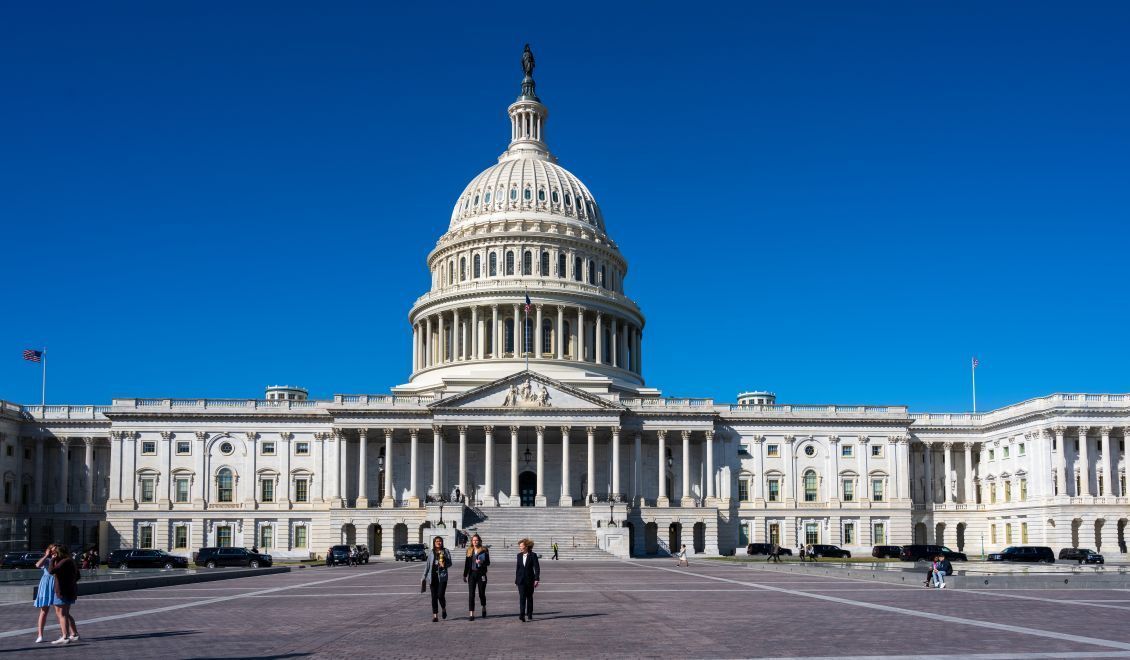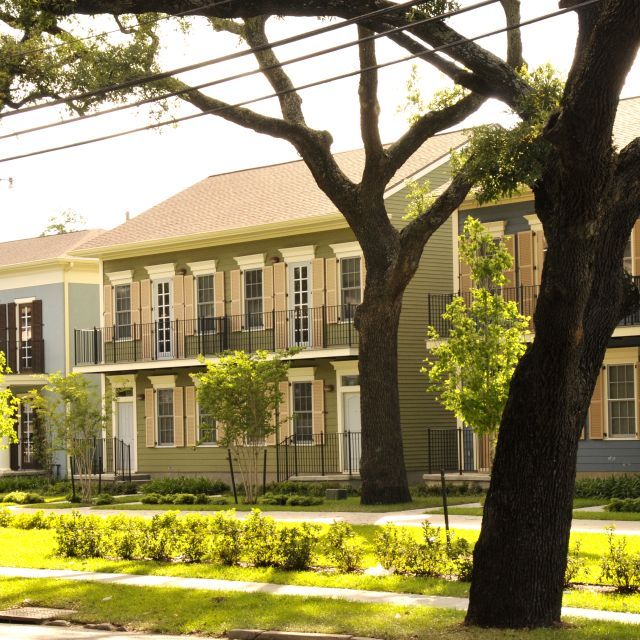On July 25, the Senate full committee approved its Transportation, Housing, and Urban Development (THUD) Fiscal Year 2025 (FY25) spending proposal. Due to the bipartisan debt limit legislation, the Fiscal Responsibility Act of 2023 (FRA), Congressional appropriators are operating under strict budget caps, which will affect the amount they can provide for non-defense discretionary programs. Senate Appropriations Committee Chair Patty Murray (D-Wash.) and Ranking Member Susan Collins (R-Maine) did agree to add nearly $35 billion in emergency spending, $13.5 billion of which would go to nondefense programs.
The Senate Appropriations Subcommittee for THUD proposed $78.2 billion in programmatic funding for HUD, which is offset by $8.4 billion in receipts and collections for a net discretionary funding of $69.8 billion. Senate Appropriators included over $11 billion in emergency spending for renewal costs for rental assistance programs. Many of the Senate’s proposed funding levels for housing and community development programs were above those provided in the FY25 President’s Budget Request and is overall higher than the House’s FY25 THUD spending proposal.
Enterprise is pleased that the Senate provided a bipartisan proposal that provides increases and level funding for many key housing and community development programs. Specifically, we are happy to see that the HOME Investment Partnership Program was spared from the significant cuts proposed in the House and received an increase above FY24 levels. The Native American Housing Block Grant and Section 4 Capacity Building program also received increases above FY24, a 10% and 12% increase, respectively.
A breakdown of the affordable housing and community development spending levels can be found in our Fiscal Year 2025 Budget Request and Appropriations Chart. Here’s where funding for some of HUD’s key programs stand compared to last year’s budget:
- $35.3 billion for Tenant-Based Rental Assistance, including $8 billion in emergency spending. This is a $2.9 billion (8.9%) increase from FY24 and $3 billion (9%) above the House proposal. It is expected this amount will cover the cost of all contract renewals and will provide 3,000 new incremental vouchers through the HUD-VASH and Family Unification Programs. The bill also provides language to allow for a new pilot demonstration for a limited number of Public Housing Agencies (PHAs) to use housing assistance payments (HAP) for leasing-related expenses, like security and utility deposits.
- $16.7 billion for Project-Based Rental Assistance, including $3 billion in emergency spending. This is $644 million (4%) above FY24 and $459 million (3%) above the House. It is expected this amount will cover the cost of all contract renewals, resulting in no cuts for current voucher holders. $10 million of this funding is also provided to make rent adjustments to assisted properties that have been renewed through the Mark-to-Market program and are distressed or at risk of becoming distressed. Also included: $25 million to address capital needs for properties that are already at market rate rents.
- $8.8 billion for Public Housing, a slight decrease of $28 million (.3%) from FY24 and an increase of $570 million (7%) above the House. This total includes $5.4 billion for the operating fund, a $109 million (2%) decrease from FY24, and $269 million (5%) above the House. $3.2 billion was proposed for the capital fund, equal to FY24 and $153 million (5%) above the House.
- $4.6 billion for the Community Development Fund (CDF). Of this, $3.3 billion is allocated for the Community Development Block Grant (CDBG) program, equal to FY24. An additional $1.2 billion in CDF is for earmarks and congressionally directed spending items. The Senate proposal also includes $100 million for the Yes in My Backyard Grant/PRO Housing grant program, equal to FY24. The House did not provide funding for this program.
- $4.3 billion for Homeless Assistance Grants, $268 million (7%) above FY24 and $259 million (6%) above the House.
- $1.5 billion for Native American Programs, a $111.1 million increase (8%) above FY24 enacted and equal to the House. This includes $1.2 billion for the Native American Housing Block Grant (formula), a $106 million (10%) increase above FY24 and $5.1 million (.4%) below the House.
- $1.1 billion for the Section 202 Housing for the Elderly, a $133 million (15%) increase from FY24 and $115 million (12%) above the House.
- $1.43 billion for HOME, a $175 million (14%) increase from FY24 and $925 million (185%)above the House.
- $256.7 million for Section 811 Housing for People with Disabilities, a $48.7 million (23%) increase from FY24 and equal to the House.
- $145 million for Family Self-Sufficiency (FSS), $4.5 million (3%) above FY24 and $20 million (16%) above the House.
- $47 million for the Section 4 Capacity Building program, $5 million (12%) above FY24 and the House.
- $10 million for the Preservation and Reinvestment Initiative for Community Enhancement (PRICE) Program. This amount is equal to FY24 enacted and the House proposal.
The Senate Appropriations Committee also released their spending proposals for Treasury and the Rural Housing Service under United States Department of Agriculture (USDA). Below is an overview of the spending proposals.
Treasury
The Financial Services and General Government (FSGG) subcommittee, which provides funding for the Treasury, released its proposal on August 1 and provided $27.9 billion for the agencies under its jurisdiction. This includes:
- $354 million for the CDFI Fund, $30 million (9%) above FY24 enacted levels.
USDA
The Agriculture, Rural Development, Food and Drug Administration (Agriculture-FDA) subcommittee, which funds rural housing programs, released its proposal on July 11 and provided $27.3 billion for agencies under its jurisdiction.
- $1.7 billion for Section 521 Rental Assistance, $83 million (5%) above FY24 and a slight increase of $7 million (0.4%) above the House. The amount provided in the proposal is estimated to fully fund all rental assistance contracts. This bill continues to provide authority for its mortgage decoupling pilot, increasing the number of eligible units to 5,000 and includes $1 million for necessary information technology upgrades to support these efforts.
- $1 billion for the Section 502 Single Family Housing Guaranteed Loan Program, $120 million (14%) above FY24 and $50 million (5%) above the House. The bill also includes $7.5 million for the Native Relending Pilot Program, $2.5 million (50%) above FY24 and the House.
- $400 million for the USDA Section 538 guaranteed loans to preserve and rehabilitate USDA rental housing, level with FY24.
- $65 million for the Section 515 Rural Rental Housing program, $5 million (8%) above FY24 and $17 million (35%) above the House.
- $36 million for the Multi-family Housing Preservation and Revitalization Program, $2 million above (6%) FY24 and $8 million (29%) above the House.
Congress is not expected to pass any of the 12 appropriations bills before the September 30deadline. It is expected that there will be one or more continuing resolutions to extend funding to avoid a government shutdown. Any extension of funding will likely go well beyond the November elections and can be taken up in the 119th Congress, as is common in an election year. Enterprise will continue to advocate to both chambers for the highest possible funding levels for affordable housing and community development programs.
To stay up to date on the appropriations process and other affordable housing and community development policy, subscribe to our daily Today in Housing newsletter and bi-weekly Capitol Express newsletter.


